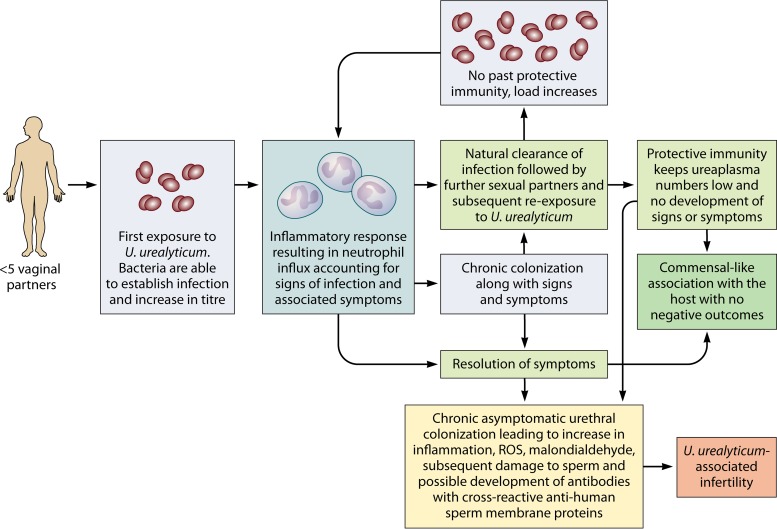FIG 1.
Proposed natural history of U. urealyticum urethral infection in men following initial exposure. A hypothetical scenario in an immunologically naive male when exposed to U. urealyticum for the first time is described. The lack of prior exposure to U. urealyticum results in an increased bacterial titer and subsequent polymorphonuclear neutrophil influx (signs of infection) with accompanying symptoms. Depending on the adaptive immunological response to U. urealyticum, the infection may clear without intervention or result in persistent urethral colonization. With an increase in the number of sexual contacts, the presence of an adaptive immune response is able to keep the titer of any newly acquired U. urealyticum bacteria below the threshold which results in inflammation. In the absence of an adaptive immune response, signs and symptoms may be present again. Persistent urethral colonization may result in a commensal-like association with the host, accounting for the high prevalence among healthy individuals, or, alternatively, may result in the factors which are associated with the development of infertility.

